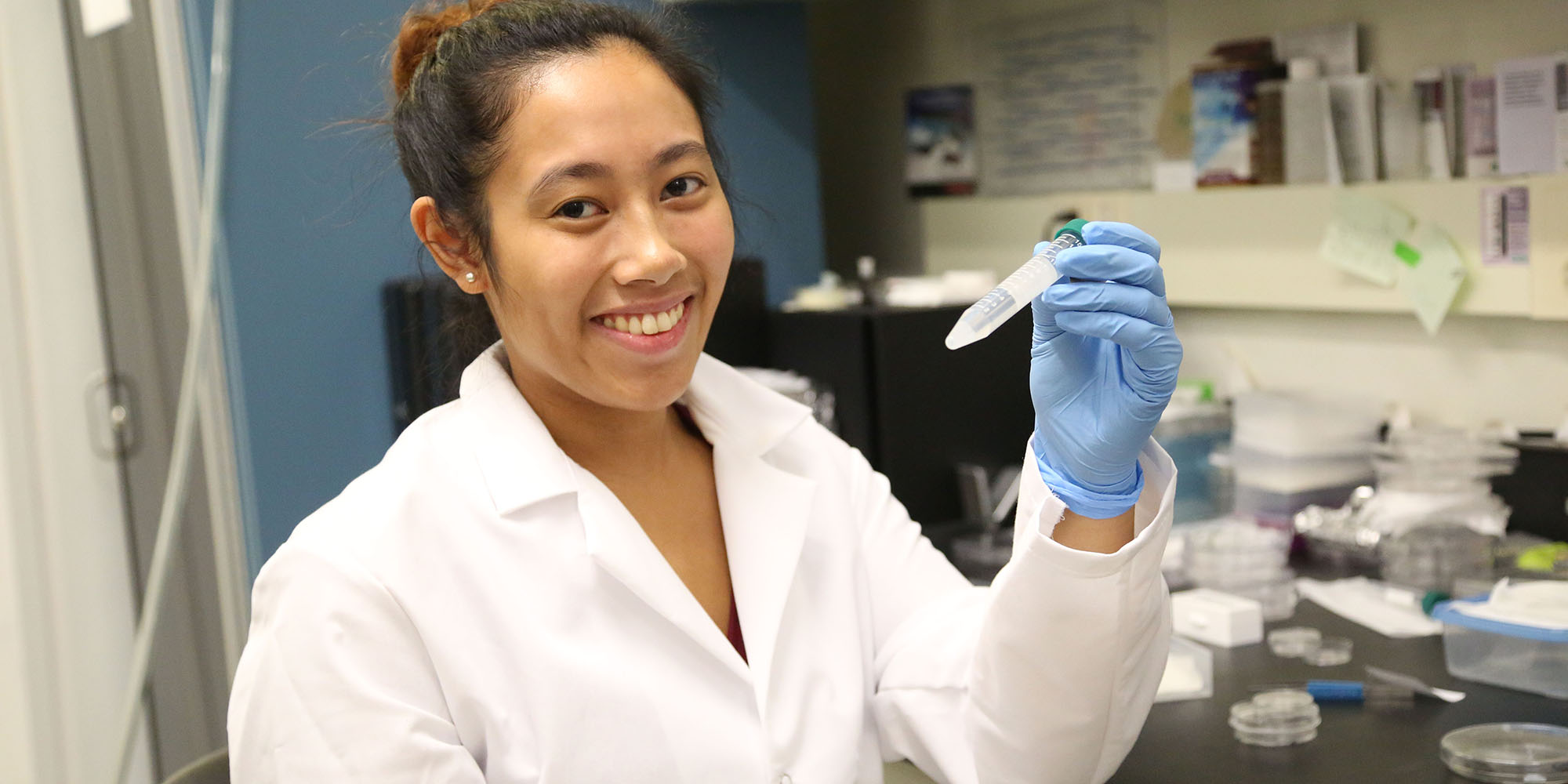Many students often begin their college career unsure of what they want to specialize in over the course of their academic career – but not Nadia Suguitan.
Nadia, a Nanoscale Engineering and Applied Mathematics major at SUNY Poly’s Colleges of Nanoscale Science and Engineering (CNSE), knew exactly what her interests were and the type of work she wanted to be a part of, making CNSE a perfect match for her.
“The individuality of each student is emphasized at SUNY Poly’s Colleges of Nanoscale Science and Engineering because everyone provides a unique perspective regardless of who they are,” Nadia says. “Having a degree in nanoscale engineering provides an opportunity to address new societal and biomedical challenges in new ways”.
For her, CNSE offers one of a kind, exciting prospects – providing groundbreaking technology, driving entrepreneurial business, and benefitting mankind with its research.
“The Colleges of Nanoscale Science and Engineering is moving forward at a very fast pace and I get to be part of that race,” she says. “Not only do we have access to world-class equipment, but we also get the opportunity to work with world-class researchers and people from the 300 global corporate partners SUNY Poly’s CNSE has.”
In addition to working with world-renowned researchers, Nadia says students like herself are given ample opportunity to sit down with those researchers and talk with them about prospective careers.
“The CNSE faculty is very welcoming to undergraduate students,” Nadia says. “Leading-edge researchers are both our mentors and our professors and I find it very important to take advantage of the opportunities provided for us at CNSE, as it is vital to our personal, academic, and professional growth.”
One of the deciding factors for Nadia when choosing CNSE, aside from its unique partnerships with global industry and research, was the personalized class sizes during freshmen year, which she says truly test one’s learning abilities and educational prowess. Additionally, she notes the student body has a driven focus on pioneering and leadership.
“Students have the ability to help shape the field and the university,” she says. “Whether it is starting a club, joining the student government, being a researcher, or organizing student events, there are so many ways to have a positive effect on the university, form new friendships, and make change happen.”
During the course of the summer, Nadia was part of a lab run by Dr. Janet Paluh which specialized in nanobioscience research – combining industry efficiency and reproducibility with the adaptability of biological systems.
Nadia says she understands the importance of this research, with its potential to be a platform for modern manufacturing processes, its medical applications in biosensors, and its benefits to other types of research. The time spent working with Dr. Paluh has also allowed Nadia the chance to reflect on her own research goals.
“I am particularly interested in the combination of technological and biological systems, specifically for applications with diagnostic abilities. My aspirations are to use the knowledge that I gain through my research experience to design and develop optical and biological technologies, some of which will be used by medical professionals, while others will be used by everyday people,” she says. “Starting up my own tech company and making the business a success is what I am working toward ultimately, but right now, I am enjoying the adventure of navigating the uncharted waters that are nanotechnology”.
